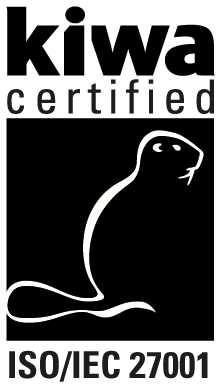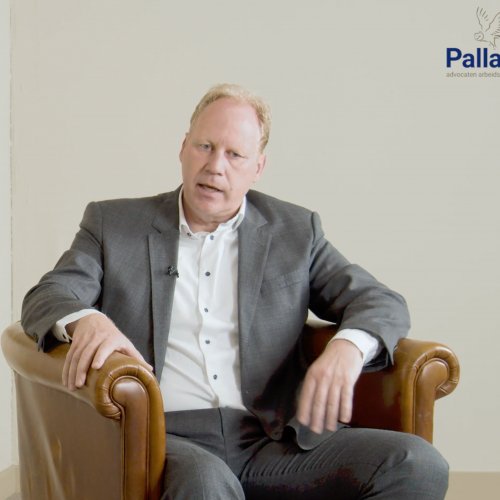1. Implementation of EU Directive 2016/801 (Internships, Study and Research)
On April 30th, 2018 the Government of the Netherlands published changes in the Foreign Employment Act which are in line with the EU Directive 2016/801. With the Implementation of the Directive, it will become easier for non-EU/EEA students, researchers and graduates to study, perform research activities and to gain work experience via an internship within the EU. The new rules will be applicable as of May 23, 2018.
Dutch Internships
Non-EU/EEA students or graduates who would like to gain work experience in the Netherlands via an internship, need a Dutch work permit.
Under the previous rules, a work permit could only be obtained in case the internship was a mandatory part for the completion of the foreign study. With the implementation of the new Directive, an internship work permit for students (Bachelor or Master), can also be obtained for a non-mandatory internship. In addition, an internship work permit can be obtained within two years after completion of a foreign study (Bachelor or Master).
During the internship the following requirements must be met:
- the internship may not replace a regular job. For this purpose a detailed internship program will need to be submitted
- the intern has income which is at least 50% of the Dutch minimum wage
Work permit for students
A foreign student in possession of a Dutch residence permit for study, needs a work permit to work in the Netherlands. A work permit can only be obtained for maximum 16 hours per week or for fulltime (seasonal) work in June, July and August. Under the previous rules, students were only allowed to work with a work permit for maximum 10 hours per week or fulltime during the summer months. The maximum duration of the student work permit remains 12 months. The new rules will also be applicable to work permits for students issued before May 23, 2018.
Intra-EU mobility
The Directive allows researchers and students, who are in possession of a residence permit for research or study issued by another EU Member State, to complete parts of their research or study in another EU Member State under specific conditions. Applying for a separate residence permit will then no longer be required.
2. Search period introduced for Blue Card holders
As of April 1, 2018 holders of a Blue Card residence permit are also eligible for a search period of three months in case their employment contract is terminated. The reason for the termination of the contract is not relevant. To qualify for the three month search period, the Blue Card must be valid for at least another three months after the termination date of the employment. In case the Blue Card is valid for less than three months after the termination date of the employment contract, the search period will be in line with the expiration date of the residence permit.
This search period was already applicable to Highly Skilled Migrants under the same conditions.
The Blue Card residence permit is not often applied for compared to the Highly Skilled Migrant residence permit. The advantages, however, may be of interest for example for applicants who have the intention to reside in multiple EU countries. When hiring a Third Country National who is already in possession of a Blue Card residence permit issued by another EU Member State, we would advise to seek immigration advice on the possible advantages to apply for a Blue Card in the Netherlands.
3. Proposal to revise the Schengen rules
The European Commission has proposed to revise the common EU visa policy. The current visa rules have remained unchanged since the EU Visa Code entered into force in 2010. With the revision of the Schengen rules, the Commission anticipates to respond better to new and emerging challenges that the EU is facing, while at the same time make it easier for legitimate travelers to visit the EU. The following changes have been proposed to make the EU visa policy more efficient and secure:
- Simplified and faster visa application procedures
- Facilitating short-term tourism
- Easier traveling for frequent visitors
The cost of applying for a Schengen visa (currently EUR 60) will be increased to EUR 80 to ensure that Member States have sufficient financial resources to reinforce the security of the visa procedure.
4. Increase in retroactive checks of recognised sponsors – be prepared!
The supervision on recognised sponsors by the Dutch Immigration authorities (IND) has been classified as insufficient. This is one of the conclusions of the Dutch Ministry and Justice Department in the report ‘between Enforcement and Service Provision’ which was published in November 2017.
The oversight role of the IND has been neglected due to a lack of capacity in workforce, as well as in clarity regarding the roles assigned to individuals and departments. The report recommends a number of measures, such as forming separate teams for supervision and enforcement and intensified checks.
In view of the recommendations proposed in this report, the IND actively started monitoring visits. Every week inspectors from Enforcement and Supervision will perform random inspection visits to recognised sponsors. During the inspection visit, the IND will verify whether the recognised sponsor meets all the conditions and obligations for recognised sponsorship (such as the duty of care, duty to administer and the information duty).
In case of violation with the recognised sponsorship duties, the IND can impose a warning or fine. In case of a very serious violation, the recognised sponsorship could also be withdrawn.
In addition to the random inspection visits, the IND participates in joint inspections with the SZW Inspectorate, whereby the latter also checks compliance with the Dutch Foreign Employment Act.
4. Reduction of legal fees IND
The IND has recently reduced their legal fees. As a result, the fees for a number of residence permits will be adjusted. The new fee for a residence permit application as a Highly Skilled Migrant will be EUR 582. The new legal fees will apply to applications submitted on or after 3 May 2018. The fee will be adjusted for the following residence permits. The new legal fees are published on the website of the IND

HILLBROOK MOBILITY REPORT MAY 2018





